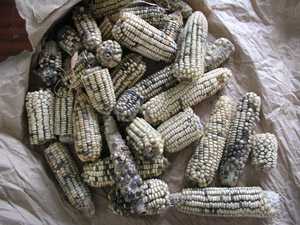Saving Lives and Protecting People in Nigeria
Related Links
As a recent graduate of Kenya’s Field Epidemiology and Laboratory Training Program (FELTP), Dr. Nguku was sent to Nigeria when the first human case of influenza A H5N1 virus was reported in Africa in 2006. In Nigeria, he was part of a team that helped track down the cause of the outbreak. The joint efforts by the human and animal health ministries of Nigeria in combating influenza A H5N1 lead to the realization that closer collaborations were required in zoonotic diseases control, thereby leading to among other things, creation of Nigeria's own FELTP program.
“This outbreak was actually the basis of the Nigeria FELTP, which is the first truly ‘One Health’ program emphasizing closer collaboration between human and animal health sectors,” explains Dr. Nguku, who has served as the resident advisor of Nigeria’s FELTP since 2008.
Humans are increasingly vulnerable to a number of diseases carried by animals. That’s why the Nigerian FELTP, funded by PEPFAR, USAID, and the Government of Nigeria, is so important. “We’ve developed a strong collaboration between the human health and animal health ministries,” says Dr. Nguku. “This is important for our work to prevent diseases that can be transmitted from animals to people, such as rabies, brucellosis, influenza, and Lassa fever.”

Aflatoxin on corn
Dr. Nguku knows that disease response must be swift. He learned this during his own FELTP training in Kenya. “Three weeks into the training there was this massive aflatoxicosis outbreak,” he says. “The classes were suspended, and we were deployed in the field to help solve this problem.”
He’s been solving problems ever since in his role with Nigeria's FELTP. One example that sticks out in his mind is the program's quick identification of dangerous contaminants in a teething mixture for children. In 2008, FELTP residents in Nigeria identified the products and educated the public about the mixture, preventing hundreds of deaths.
“I am very proud of what we have been able to accomplish,” he says. “We are progressively imparting the right skills, knowledge, and attitudes to the future public health leaders of Nigeria.”
- Page last reviewed: January 2, 2015
- Page last updated: January 2, 2015
- Content source:
Global Health
Notice: Linking to a non-federal site does not constitute an endorsement by HHS, CDC or any of its employees of the sponsors or the information and products presented on the site.


 ShareCompartir
ShareCompartir